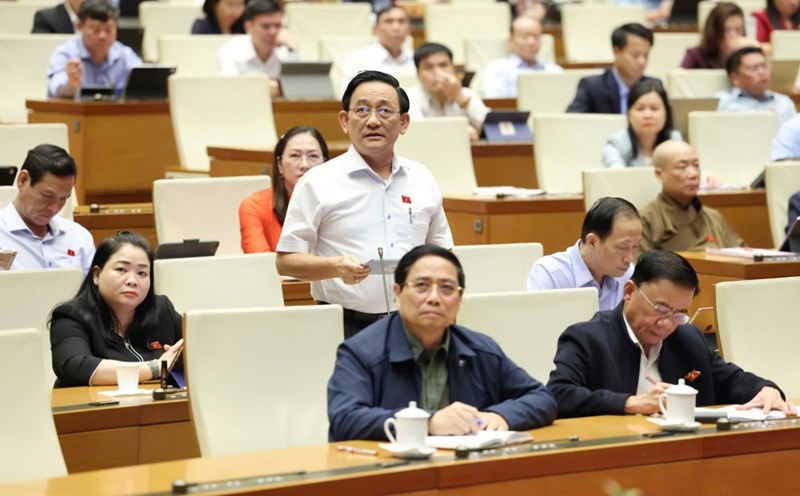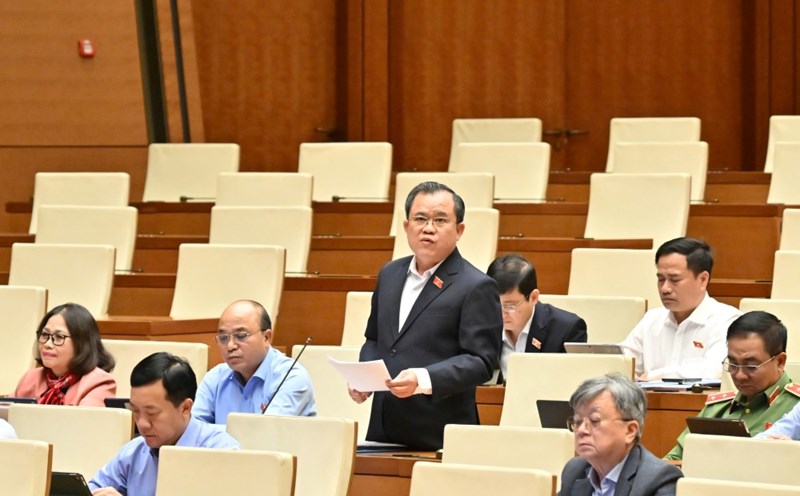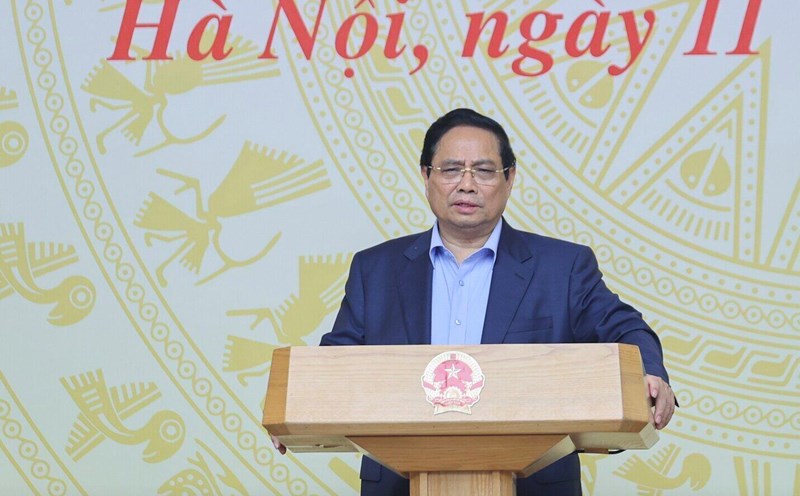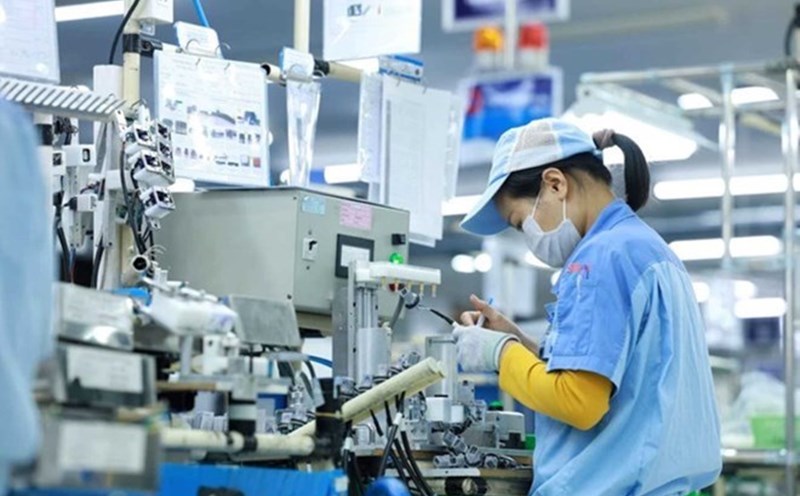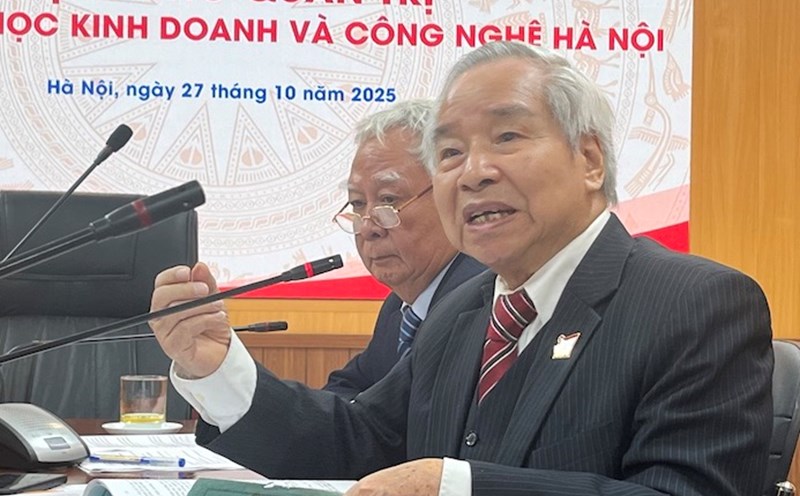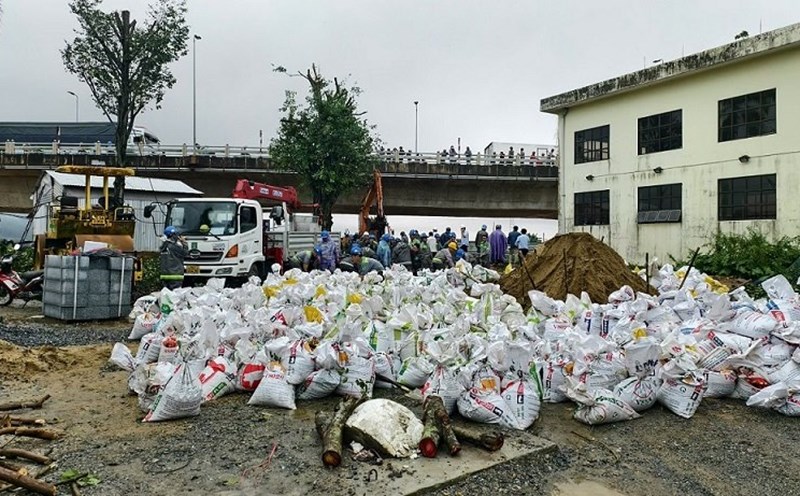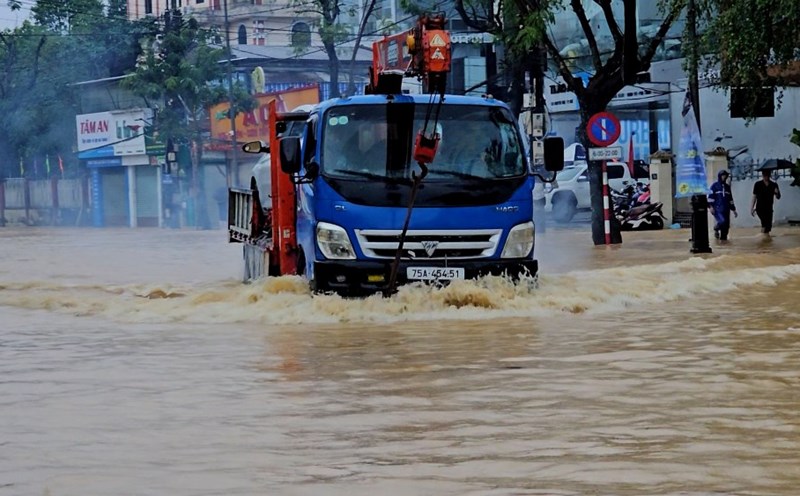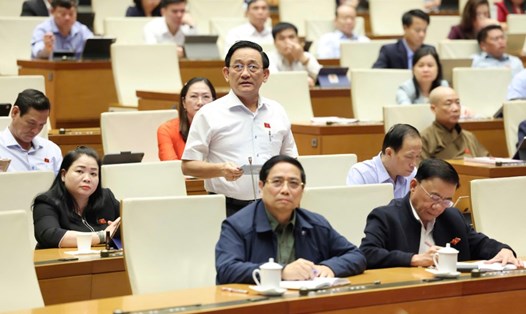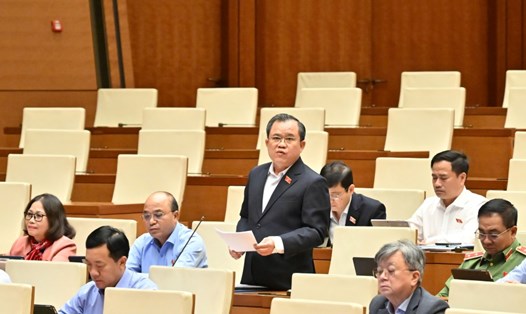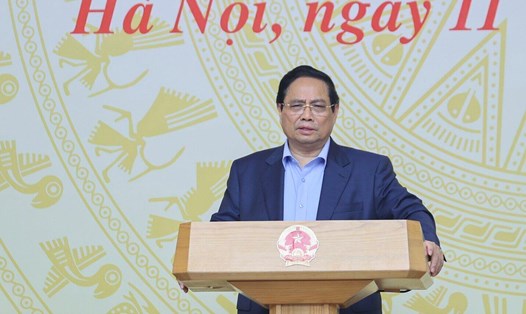On October 29, speaking at the socio-economic discussion session, delegate Nguyen Nhu So (Bac Ninh National Assembly Delegation) assessed that in the context of strong global economic fluctuations with tariffs and geopolitics, Vietnam's economy is still rising as an economic "hamlet" when GDP in the third quarter of 2025 increased by 8.23%, with a trade surplus of more than 16 billion USD...
This proves international confidence in Vietnam's economic resilience. However, the delegate said that to turn this achievement into a long-term capacity, it is necessary to develop a private economic sector development strategy as a "reactive engine", a creative spearhead, a driving force of production...
The delegate of Bac Ninh delegation emphasized the need for a substantial breakthrough in institutional reform with a focus on policy implementation - considered the "bottleneck of all bottlenecks" in economic development. The delegate said that there is a big gap between paper policies and the lives of businesses.
The delegate cited the data, in the first 9 months of the year, 175,000 enterprises withdrew from the market, this figure reflects the weakness of policy will and implementation efficiency.
The 2% VAT support policy in Resolution 43 is a typical example, although designed to meet the target, the disbursement is only about 3% because the process is complicated, the criteria are unclear, and banks are afraid of risks. As a result, capital does not return to the real economy, businesses are exhausted, and policies are considered ineffective.
Institutional breakthroughs must start from implementation reform, each policy issued needs detailed guidance, clear timetable, public supervision, and measurement of reform effectiveness through business experience, not administrative reporting..., the delegate commented.
The delegate of Bac Ninh delegation recommended that it is necessary to strongly restructure capital mechanisms, bringing capital flows back to the real economy, instead of getting caught up in short-term speculative cycles that do not create sustainable value.
According to the delegate, the market must be the "blood" of production, not just a "playground" for speculation. Capital flows need to be strategically oriented towards production, manufacturing, consumer goods, high technology, green economy... the pillars that create added value and jobs.
The government needs to develop long-term capital sources such as investment funds, corporate bonds, venture capital markets, etc. to expand investment funds to accept risks to finance technology innovation and creative startups. Thereby reducing dependence on short-term credit from banks, the delegate proposed.
It is necessary to restructure production and exports in the direction of increasing domestic added value. This should be considered a strategic task to build an independent and self-reliant economy in the context of widespread protectionism.
The delegate cited that Vietnam's localization rate is currently only 36.3%, significantly lower than China's 67.1%; Thailand's 58.4%; India's 53.3%... The low domestic rate makes Vietnam vulnerable or at risk of being taxed.
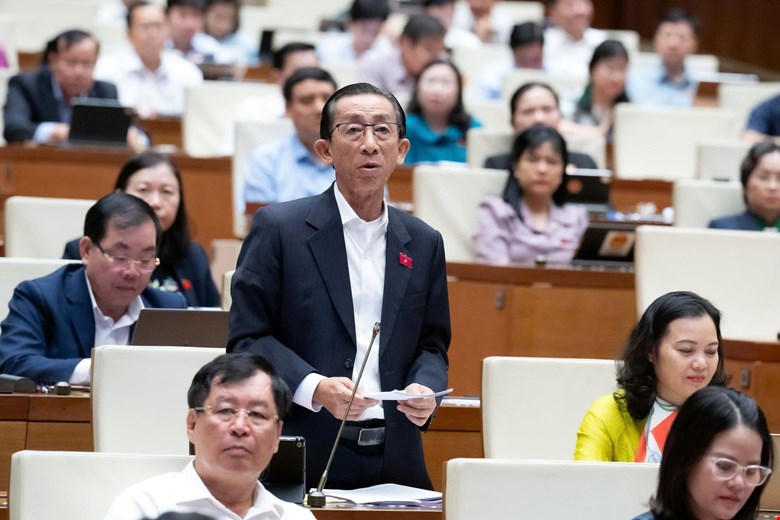
Delegate Tran Hoang Ngan (HCMC Delegation) noted that economic development needs to pay special attention to environmental issues.
"In recent days, we have been heartbroken to see people having to endure the effects of natural disasters and floods. Many localities have been severely affected by recent storms" - the delegate said.
The delegate suggested that the Government soon submit to the National Assembly an emergency financial package, increase budget expenditure, increase budget expenditure to support people, and overcome infrastructure damaged by natural disasters in localities.

